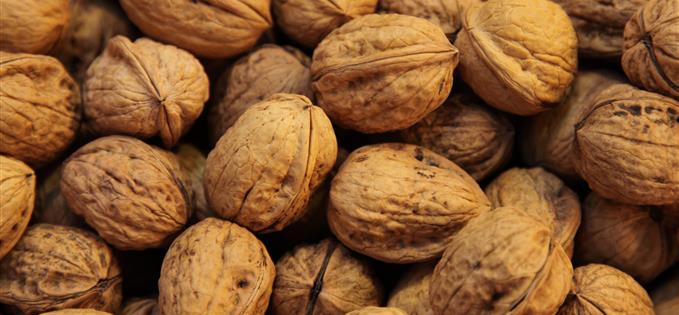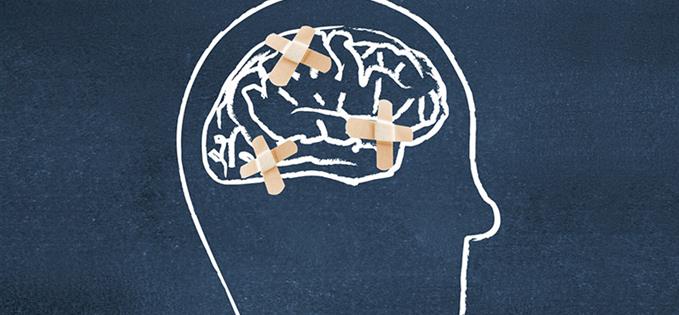IF YOU’RE feeling down in the dumps today, you’re certainly not alone.
Snow threatens, heralded by frosty mornings that beg to be spent huddled under a warm duvet. Sales beckon, an ironic reminder of our starved post-Christmas bank accounts. And New Year resolution enthusiasm, needless to say, is dwindling rapidly.
Whilst it may be tempting to stay in bed, your mental health won’t thank you for it.
Welcome to 'Blue Monday'.
This moniker, applied to the third Monday of January - today - signals what is apparently the most depressing day of year, when festive cheer has scarpered and apathy truly set in. Unfortunately, whilst it may represent the annual nadir, it’s not the only day in winter that leaves us feeling disheartened: SAD (seasonal affective disorder) can last up to six months, beginning in September and extending until March or April.
Otherwise known as ‘winter depression’, SAD is caused by shortened daylight hours and is often most severe from December to February, when tenuous exposure to daylight can cause a range of symptoms: primarily low mood, lethargy and lowered immunity. In some cases, effects can also include sleep problems, anxiety ...and even reduced libido.
In other words, SAD lives up to its abbreviation. But worry not, there’s light at the end of the proverbial tunnel with our top three tips for a happy winter...
EAT WELL
Research indicates that those affected by SAD tend to binge on sugary snacks and carbohydrates. These may boost mood temporarily but long term consequences are more likely to include weight gain and heart disease. To reduce cravings, nutritionist Daisy Caves recommends eating ‘little and often’. Healthy on-the-go snacks include a handful of walnuts (these contain omega 3, which promotes brain health), fruit (oranges, pears, grapes and bananas are all in season) and rice cakes or carrot sticks with hummus.
Since our brains are 40% fat, unsaturated fats - found in sources like avocadoes, seeds and olive or rapeseed oil - should be a dietary staple. Oily fish is a fantastic source of both omega 3 and that elusive vitamin D, whilst tryptophan can be found in eggs, low fat cheese, beans and lentils: this stimulates ‘feel good’ serotonin. The bad news? Fat of the ‘trans’ variety is best avoided, so time to clear out those biscuits and cakes.
 Walnuts contain omega 3 - good for brain health
Walnuts contain omega 3 - good for brain healthLIVE WELL
Whilst it may be tempting to stay in bed, your health won’t thank you for it. Yes it’s a cliché but fresh air and exercise are inimitable for both mental and physical wellbeing. Just 20 minutes of moderate exercise a day, combined with strength training two days per week, is needed to stay healthy according to the NHS. Whether it’s a walk in the country or session of yoga, there are many ways to get those endorphins pumping and it might even be an opportunity to try something new. For example, the Printworks is offering free Swing and Charleston lessons from 12-2pm on Fridays in January... Or why not try a new fitness class, the zanier the better?
Fresh experiences needn’t only be related to keeping fit. Staying inquisitive and trying new things is a great way to stave off apathy and could comprise anything from learning another language to visiting a thought-provoking exhibition. Even existing routines can be given a shake up by, for example, introducing mindfulness to your daily walk or just watching something you wouldn’t normally this evening: it might be a pleasant surprise.
 Keep fit throughout winter
Keep fit throughout winterTHERAPIES
For people whose illness is deeper-reaching, health professionals often recommend therapy. There are several types, ranging from talking therapies to homeopathy - for instance, reiki and massage - or simply buying yourself a light box.
In terms of talking therapies, those most commonly used to treat SAD are CBT (cognitive behavioural therapy) and counselling: CBT is generally more solution-based and grounded in the present, counselling more contextual. For many, these are an effective alternative to antidepressants and can be used in conjunction with methods like meditation and mindfulness.
Alternative therapies also remain popular, despite still being somewhat controversial in terms of scientific evidence. Certain studies suggest acupuncture increases serotonin production whilst the positive effects of herbal remedies like St John’s wort are well documented. However, remember that this - like other popular supplements such as magnesium and folic acid - can have similar side effects to prescribed medication, and counteract other drugs such as the pill. Aromatherapy is also a popular calming mechanism, for instance lavender to aid sleep; although arguably developing a regular sleep pattern, and avoiding rigorous exercise or caffeine late at night, is just as effective. No bringing your phone to bed either...
 Cognitive behavioral therapy can be a helpful tool
Cognitive behavioral therapy can be a helpful tool









